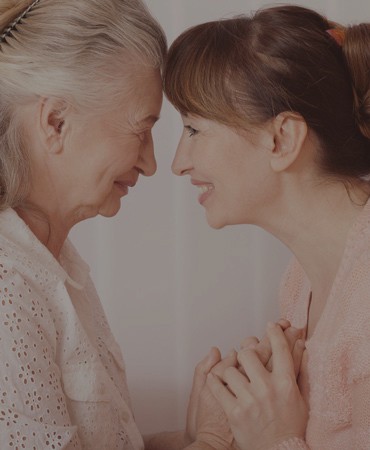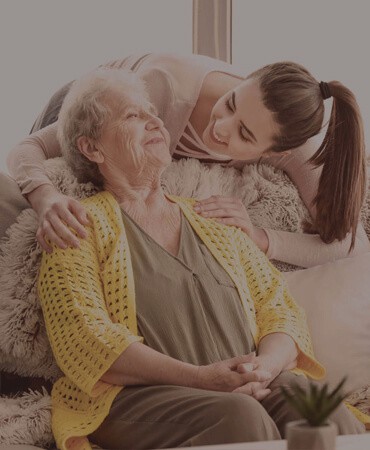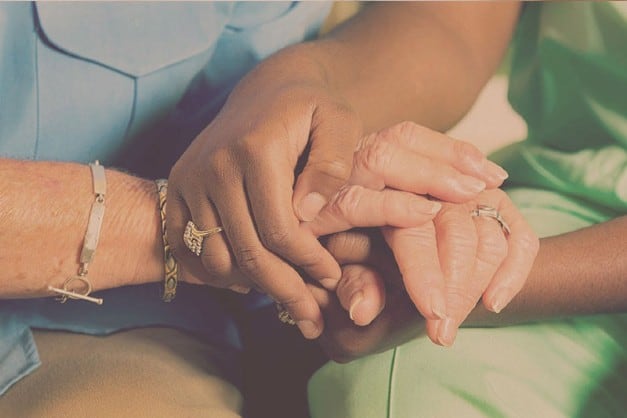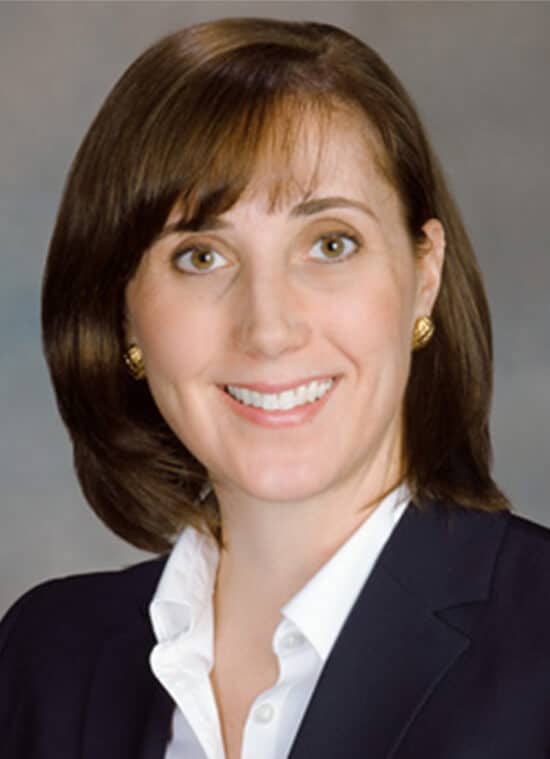At Home Care Assistance our goal is to provide the highest quality in-home care service in Virginia. The following five principles guide our standards of care:
- Hire only highly experienced caregivers who see caring for seniors as their mission in life, not just a job.
- Custom match each senior and caregiver based on their personalities to build a trusted bond.
- Develop and implement a customized care plan based on the specific individual needs of each of our clients.
- Build the top senior care management team to provide each client Concierge Level Home Care Services.
- Provide balanced care focused on keeping our seniors healthy, happy, physically active, and socially engaged.
Select the type of home care
that best meets your loved one’s needs

24-Hour
Home Care
Live-In or 24 Hour Care offers seniors the opportunity to age in place, in a familiar home environment surrounded by their cherished memories. Around-the-clock care is a great alternative to assisted living facilities or retirement homes.

Hourly Home Care
Hourly home care is not only used to enhance the lives of our senior clients, but the lives of their families as well. Hourly care can provide family caregivers with time to attend to their own needs and personal obligations.

Senior Living
Community Care
There are many options to consider when looking for solutions in caring for your aging loved ones, including live-in facilities. We can help you determine the best possible care for your loved one with whatever budget you are working with.

Memory Care at Home
Home Care Assistance proudly trains our caregivers in the Cognitive Therapeutics Method™ so that clients can receive one-to-one cognitive stimulation as well as support with basic care and activities of daily living– at no additional cost.
Providing High-Quality Senior Care in the Comfort of Home
We start by listening and learning. After we have a complete understanding of the client's needs and abilities, the level at which family members will be involved, and the general home environment, we will design a personalizedcare plan. We offer a variety of care plans, from hourly to 24/7 care, and our caregivers can assist seniors with tasks such as:
- Light housekeeping, includingwashing dishes and doing laundry
- Bathing, grooming, getting dressed, and addressing bathroom needs
- Planning and preparing nutritious meals
- Exercise and mobility assistance
- Prescription pickup and medication reminders
- Transportation to doctor appointments, social activities, and errands
- Emotional support and companionship
WHAT OUR CLIENTS ARE SAYING

My mother suffered a stroke and I was referred to Home Care Assistance of Richmond. Initially, they provided companion care for my mother during the day, seven days a week. As my mother’s physical condition continued to worsen, I extended the care to 24 hours a day. I have been incredibly pleased with Home Care Assistance for several reasons. One is continuity of care providers. My mother has the same two caregivers, week in and week out. This has given me the opportunity to get to know the caregivers and establish a working relationship with them. They have become an integral part of my mother’s medical team which includes her primary care physician, neurologists, and therapists. Also, the companions demonstrate an actual concern for my mother’s well-being. They are compassionate and caring in the way they interact with her. And there is no price you can place on the peace of mind knowing that a loved one is being cared for in a manner that you would provide yourself if possible.
Trace Carson – Richmond, Virginia

My mother came home to an independent living facility after a hospital stay. She was bedbound and needed 24-hour care. The Home Care Assistance caregivers were always there on time and all the care was highly coordinated, so I did not have to worry about anything. Most importantly, the providers went out of their way to make my family member comfortable. Nothing was too much for them. They encouraged her, fixed all meals, cleaned up everything. They took extra time to look up questions my Mom had, to play music for her and whatever she asked. They became friends over time. I would recommend Home Care Assistance to anyone.
– Sharon Voerman – Williamsburg, Virginia

Home Care Assistance did a fantastic job helping my mother recover after her hip surgery. My mom was extremely reluctant to have outside help come into her home. She wanted me there to help her all the time, but I work and have children so there was no way I could provide the care she needed. The caregivers were very caring and professional. She quickly bonded with them and they have a great relationship. Home Care Assistance did a much better job than I could have done!! I really appreciated their help.”
– Jason Schnepf – Midlothian Virginia۔

As an Executive Director and licensed administrator in Senior Living Communities for my entire career, I know the importance of excellent training for staff. Well trained staff result in excellent care. Home Care Assistance of Williamsburg does this so well. Well trained staff is a priority for them. Home Care Assistance also focuses on their staff getting to know their clients. This results in companionship and socialization – two things that promote quality of life for seniors. I highly recommend Home Care Assistance of Williamsburg. They provide excellent care.
– Marion Shackford President, Adaptive Home Environments LLC Williamsburg Virginia۔

We contracted Home Care Assistance to provide in home care for my mother. They began working daytime in the home 5 days/week, and as her needs have progressed, they now provide care 24 hours a day 7 days a week. Home Care Assistance always stays in touch with all or our family members and keeps us updated on Mom’s health and activities. From the outset, this caregiver showed genuine interest in my mother, quickly won her confidence and friendship; and have always cared for her in gentle, prompt, and thoughtful manner which goes well beyond our expectations. Our family has been exceptionally lucky to have Home Care Assistance. Both the caregivers and the agency have been fully supportive and communicative in every way.
– John Trattner – Glen Allen Virginia

My mother came home to an independent living facility after a hospital stay. She was bedbound and needed 24-hour care. The Home Care Assistance caregivers were always there on time and all the care was highly coordinated, so I did not have to worry about anything. Most importantly, the providers went out of their way to make my family member comfortable. Nothing was too much for them. They encouraged her, fixed all meals, cleaned up everything. They took extra time to look up questions my Mom had, to play music for her and whatever she asked. They became friends over time. I would recommend Home Care Assistance to anyone.
– Sharon Voerman – Williamsburg, Virginia۔
Communities We Serve:
Latest From Our Blog
A good night’s sleep is vital for everyone, but it’s especially important for seniors’ physical and mental health. As people age, their sleep patterns often change, making it more difficult to get the rest they need. This guide offers practical tips for in-home caregivers to help their senior loved ones…
When you’re a caregiver, it’s easy for your own identity to get lost in the daily demands of looking after someone else. Rediscovering who you are outside of this vital role isn’t selfish. It’s essential for your wellbeing and resilience. Reconnect with Past Hobbies Think back to the activities you…
A dementia diagnosis brings significant changes, not just for the person diagnosed but also for the entire family. Navigating care decisions and shifting roles can create tension and conflict among siblings and other relatives. Learning how to manage these new family dynamics is essential for providing the best support for…
CONTACT
RICHMOND OFFICE
Richmond, VA 23233





